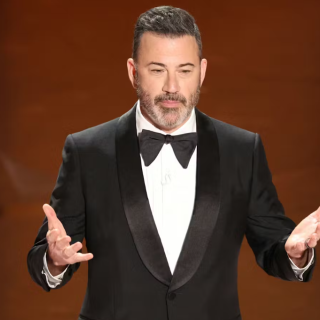As in so many things, Gov. Mike DeWine and his cronies; led by party leaders in the State House and Senate who blindly copy the legislation of Texas, Florida, Georgia, and Arkansas; Lt. Gov. Jon Husted who publicly admits to disliking the arts and culture; and Yo Yost and anti-abortionist LaRose who are unfamiliar with the US Constitution, their own prior statements, and truth struggle to lead Ohio into paths of decline and destruction. Incredibly, these gerrymander-elected politicians claim to have earned law degrees.
This is true in so many ways, from the environment to human services, voting rights, public health, and knowledge and expertise at any level. My focus falls on public education. Having done their best to destroy public K-12 education by unconstitutionally diverting public funds to private education—so called “public vouchers” (in the courts at present)—from for-profit charter schools to parochial schools, and even online and 1930s Nazi home schooling, they are joined in cities like Columbus by anti-democratic Democrats whose tax abatements and TIFs for private interests (who support the mayor and city council) radically underfund public education.
After years of reducing funding for the state’s relatively small and broadly mediocre public universities and supporting anti-intellectualism in all ways possible, the Ohio right aimed its focus on colleges and university in 2023. The uncoordinated campaign is multi-faceted. Unlike other states, Ohio lacks a coordinated public higher education system with a chancellor with defined powers and authority. It shows. (See my “Lawmakers rush to cancel public higher education in Ohio,” Cincinnati Enquirer, Apr. 19, 2023)
State Senator Jerry Cirino, who holds an honorary doctorate from a vocational post-secondary school that does not grant PhDs and shows no evidence of basic literacy, knowledge, or consecutive thought gets the most attention with his SB83. National publicity makes Ohio one of the laughing stocks of the US, indeed the world. For example, the Washington Post notes, “In Ohio, a massive bill that would overhaul state higher education passed in the Senate. In some places, however, bills have died for lack of support or been revised after pushback from university leaders, faculty, and others” (“Conservatives seek control over public universities with state bills,” June 3, 2023).
This incoherent screed was channeled to Ohio from Texas, Florida, Georgia, and Arkansas via the billionaires’ right wing legislative lobbyists ALEC. With it, Cirino leads the charge publicly and in State House hearing rooms. Hundreds of protesters fill the grounds, hallways, and hearing rooms, but far more supporters are actually heard. That is the gerrymandered legislative Ohio Way.
Cirino’s responses to reporters and his staff-written OpEds and public statements show no familiarity with the text of SB83 itself, let alone the actual situation in colleges and universities, classrooms, faculty-student relationships, and peer relationships among students. Evidence and facts are of no interest. They only interfere with radical efforts to remove constitutional and other legal rights including free speech, academic freedom, rights to organize and collective action, and any intellectual traditions right, left, or center. Cirino and his buddies know no US or world history, and apparently do not understand why anyone else should either. Is it surprising that the Ohio right-ring assault on higher education is more ignorant and unfocused that its peers in DeSantis’ Florida, Abbott’s Texas, or Kemp’s Georgia? Perhaps unsurprisingly, Ohio right-wing Republicans do not even copy—that is, cheat—well.
Take these examples. Like his peers, Cirino opposes “controversial,” “uncomfortable,” and “divisive” history, civics, facts, or concepts. Except, that is, the ones he likes. In a breath-taking combination of illogic, ignorance, and denial of reality, he proposes well-funded institutional right wing centers of “diverse thought” or studies for The Ohio State University and the University of Toledo.
The OSU center would be named for Salmon P. Chase. But neither Cirino nor anyone else can say why or what. Born in New Hampshire, in 1808, Chase served as a Supreme Court chief justice. While in his second term in the U.S. Senate, President Abraham Lincoln nominated him to be Secretary of the Treasury. As Secretary, Chase helped to establish a very limited—compared to other countries--national banking system after the passage of the National Banking Acts of 1863 and 1864. That is his limited claim to fame. There is no relationship to “diverse thought” of any kind.
Cirino is completely unaware that across a wide variety of opinion surveys more than 80 percent of those polled support “uncomfortable” history and social studies, albeit for different reasons. In my almost 50 years of teaching history in several countries and states, all students regardless of other differences, want to learn about the complicated and contradictory origins of the Americas, the causes of the American War for Independence, and the history of slavery. Right, center, and left: they consider it central to their intellectual and civic development.
In proposing that all course syllabi be posted online with instructors’ identification, Cirino threatens more fundamental legal and ethical strictures than I can list here.
In lieu of “divisive” or “controversial”—that is, anything other than those he supports—and “woke”—of which he has no understanding—history, Cirino offers a five-document required course, from the Declaration of Independence to the Constitution, Emancipation Proclamation, and as a blatant racist token one letter from prison by Martin Luther King, Jr.
The honorary Ph.D. and elected State Senator does not know that no document speaks independently for itself without social, political, cultural, and economic context, interpretation, and differences about meaning(s). Each of these documents is subject to very different interpretations. Experts differ widely among themselves. What did Cirino, his cronies, and staff learn in vocational school and high school? Apparently, nothing.
Insufficient attention is paid of other parts of SB83 including its assault on science as well as history, civics, and any of non-traditional cross- or interdisciplinary studies. This includes gender, Black, and other ethnic studies.
Cirino has no awareness that available evidence suggests more ideological boundary crossing by the political right than the left. The greatest documented obstruction to “free speech” on campuses today stems from peer pressure among students, not from professors in classrooms. Nothing in SB83 and its likenesses touches that reality.
The targets of Cirino also include the fundamentals of modern scientific knowledge and inquiry, with environmental and climate change especially prominent. Mother Jones magazine puts it this way: “Ohio Stater grapple with bill that stifles climate speech. ‘You can say gravity isn’t true, but if step off the cliff, you’re going down.’” (June 1, 2023)
The Ohio legislature infamously redefined clean energy to include natural gas, and now allows fracking on formerly protected public lands. Intel, with their so far relatively small “fab” in central Ohio is permitted to do as much environmental destruction as it desires. The people, the physical world, the present, and the future be damned.
That point enables us to square the DeWine-an circle in terms that would shake Charles Darwin to his skeletal remains. Recall that as a major part of his re-election campaign, DeWine secretly offered environmental damaging micro-chip manufacturer Intel Corporation $3 billion in public funds to locate its still undefined set of factories—CEO Pat Gelsinger, who speaks his own language, calls them fabs. DeWine was bidding explicitly and purposefully against other states.
Unacknowledged in the responses, both negative and positive, to SB83 and its emerging House version is the parallel assault on higher education by subverting and radically reducing Ohio colleges and universities to “workforce training,” if as workforce and education are one and the same. Note that the Senate committee that Cirino “chairs” is named, in this order, “Workforce and Higher Education.” This pairing and prioritization progresses through Ohio’s departments, boards, and committee on education.
As a historian of education, it seems to me that the so-called state leaders trace to undo all the human gains of both the nineteenth and twentieth centuries in a matter of months. Higher education as it has developed through the contours of US history is on the chopping block of gerrymandered right-wing domination.
Much as DeWine semi-legitimately—at best—bought Intel for his re-election campaign of slogans, the little governor, as he is widely known—advanced in much touted current state budget proposal a plan to buy students for radically reduced Ohio public colleges and universities. Ignoring years of declining state funding for public higher education, DeWine and legislators toot their off-key horns, sloganeering out of context, for rather limited scholarships for the state’s “best and brightest”—yes!—current high school graduates to remain in the state and attend public institutions.
On the one hand, this is a tardy admission that the state is losing population of all kinds including talented high school graduates who have choices for university attendance. The current proposal is for a slim $6,000 scholarship for 15,000 applicants from the top of their high school classes from households that report (terms so far unstated) income $87,000 or less per year.
Tardy and insufficient, on the other hand, this is in the language of modern, unself-critical trick-down economics, state “workforce development.” Intellectual, social, and cultural development are simply not part of the mix. Young people be damned—in fact, capitalized and marketed for the economic aspirations of the declining state. Much like Intel, the young of Ohio from families with limited resources are for purchase by DeWine, Lt. Gov. Husted, and their private, lieutenants, and generals in the legislature and the state’s corporate leaders.
The proponents of simultaneously destroying higher education as we have known it, and buying and selling students are one and the same. STEM majors are the only subject area mentioned. But as with the mad rush to graduate far more four- and five-year engineering degree holders than Intel will ever employ, two year technical and community colleges are ignored in the calculus of ignorance and ignorants. The far greatest demand for works—to the extent that the “new high tech economy” will actually develop in the state—will be two year program graduates.
Husted sees absolutely nothing when he blurts out, as quoted in the Columbus Dispatch, “It’s not about what they [young people] need, it’s about what we [the imaginary state economy] need. We need them.” (“DeWine: Higher Education scholarships in budget needed for Ohio workforce to prosper,” June 5,2023. That title is itself a misnomer. The budget proposal is about the state “prospering,” not students or a workforce.)
Husted joins DeWine and Cirino in their inability simultaneously to grasp the basics of higher education, understand paths of economic development, and do simple arithmetic. There is now, and there will continue to be no connection between young people’s lives and futures, and probable economic patterns. The presence of disconnection regarding colleges and universities only worsens.
--------------------------
Harvey J. Graff is Professor Emeritus of English and History at The Ohio State University and inaugural Ohio Eminent Scholar in Literacy Studies. Author of many books, he writes about a variety of contemporary and historical topics for Times Higher Education, Inside Higher Education, Academe Blog, Washington Monthly, Publishers Weekly, Against the Current, Columbus Free Press, and newspapers. Searching for Literacy: The Social and Intellectual Origins of Literacy Studies was published by Palgrave Macmillan in 2022. My Life with Literacy: The Continuing Education of a Historian. The Intersections of the Personal, the Political, the Academic, and Place is forthcoming. “Reconstructing ‘uni-versities’ from the ashes of the ‘multi- and mega-versity’” is in progress.



